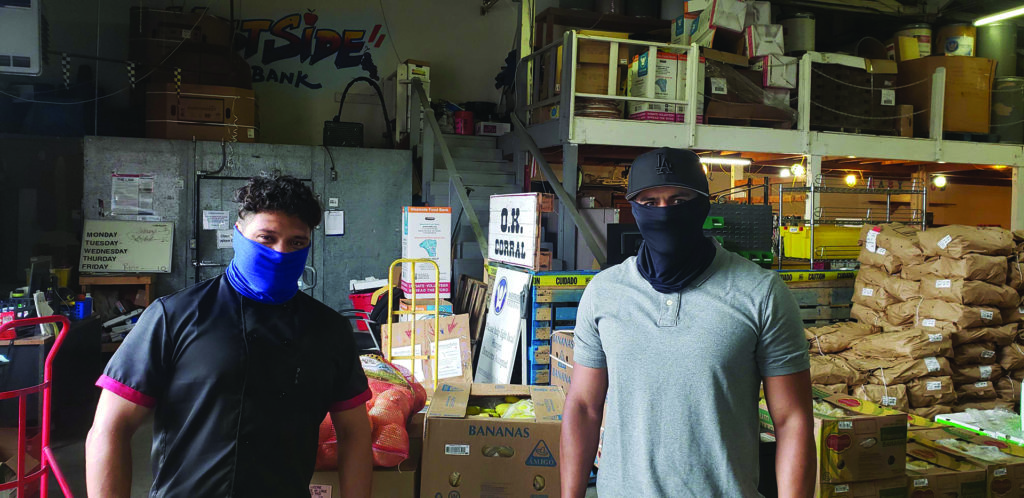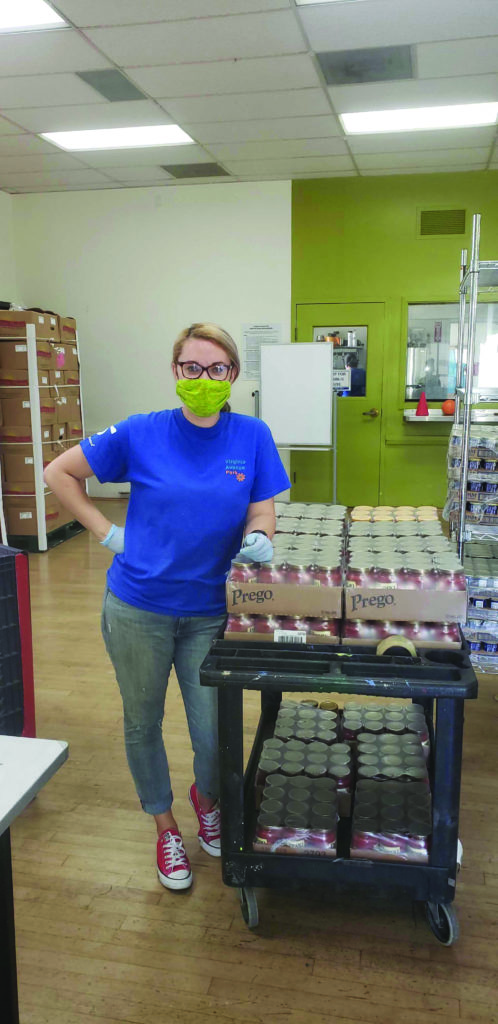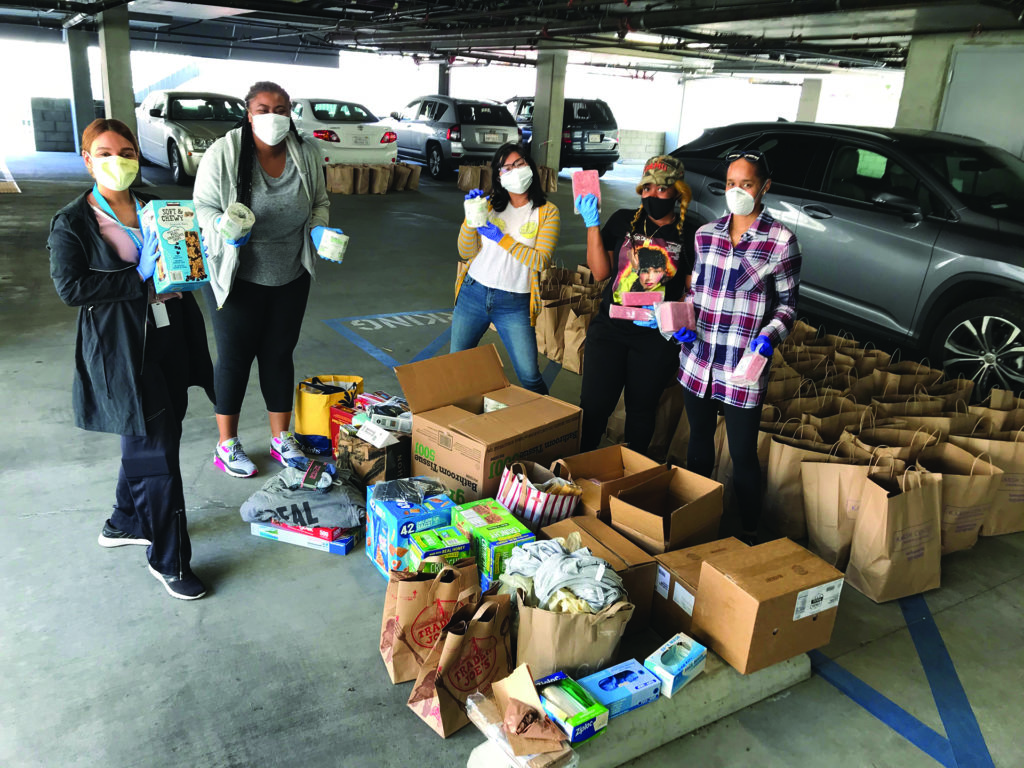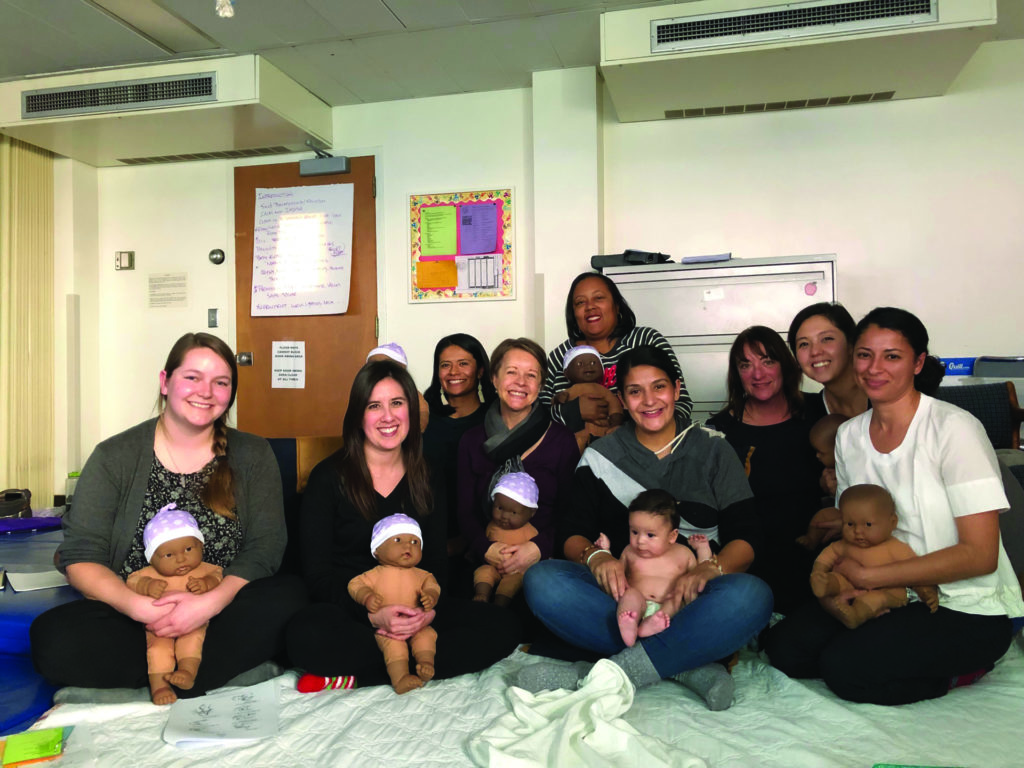Philanthropy in the Time of COVID
THE COMMUNITY IMPACT FUND PROVIDES MUCH-NEEDED SUPPORT TO THOSE MOST IN NEED.

BY LAUREL DIGANGI
There is probably not a single person in the country who hasn’t been affected by the COVID-19 pandemic. Yet for many underserved populations—the homeless, the poor, veterans, victims of domestic violence, and people with physical and mental health issues—their challenges have increased exponentially. The Community Impact Fund (CIF) created by Saint John’s Health Center Foundation has been serving these vulnerable populations since 2017 and is successfully stepping up to meet the new and unprecedented challenges they faced in the wake of this pandemic. Each year the foundation committee grants funds to organizations that strive to improve the health of local residents. Grantees are selected based on the community’s health needs and how the organizations’ work is compatible with the mission of Providence Saint John’s Health Center. The following organizations have all received a yearly grant from CIF, with some receiving additional funding for COVID-19-related needs. As their staff and volunteers cope with their own pandemic-related difficulties, these organizations are adapting and meeting the challenges of serving the increased needs of their communities. The foundation worked with the CIF grantees as they pivoted to respond to the pandemic, says Jeff Schaffer, who helps steer the foundation’s CIF committee. “We reached out to all 21 grantees to find out how are they doing in the time of COVID-19,” Schaffer says. “The committee approved a number of requests to modify grants. Other organizations got extensions on how long they can use grant money for services.” Here is a look at how some of the CIF grantees are meeting community needs.

WESTSIDE FOOD BANK
Putting food on the table is one of the greatest challenges that people face when they lose income from layoffs and job loss. Westside Food Bank might be considered a “first responder” to this need. According to Bruce Rankin, executive director of Westside Food Bank, this need has risen substantially since the COVID-19 pandemic led to loss of income. “We’re currently distributing about 77% more food than we did a year ago, and the typical food pantry has indicated that their need has doubled,” he says. “Agencies are reporting higher numbers of people coming to pantries who have never been before.” Westside Food Bank is a warehouse operation that buys much of its food in bulk and distributes it at no charge chiefly to local food pantry agencies where families and individuals in need can receive free food to bolster their food security. “We can get a truckload of canned tuna for $60,000, where it might cost an individual agency $90,000 for the same amount,” says Rankin. “Food banks are designed to bring the economy of scale to charitable food assistance.” Before the pandemic, initial funding from CIF allowed Westside Food Bank to purchase produce and special handling of perishable products, including refrigeration and delivery. “All was going swimmingly until the beginning of March. That’s when we experienced these incredible increases,” Rankin says. Additional CIF funding allowed Westside Food Bank to readjust its budget to help cover the increased demand. But increased demand wasn’t the only issue for food banks. The pandemic also slowed down the supply chain of nonperishable food deliveries. “We were used to getting our food delivered a week and a half after ordering it,” says Rankin. “In April, things got so bad that orders were delayed for about seven and a half weeks. Today in mid-July, we still have to wait about four and a half weeks for an order. Right now we’ve run out of shelf-stable milk, and we placed the order at least three weeks ago.” “Without the additional funds that CIF granted our organization, our board would not have been able to set up a budget that was a meaningful response to the pandemic,” says Rankin. “Along with other foundations, they’ve paved the way forward for us to make a meaningful impact.”

SAFE PARKING LA
Approximately 25% of Los Angeles’ homeless population are living in their vehicles. For these people, finding a regular place to legally park at night so they can sleep without fear is difficult, if not impossible. As the largest safe parking program in the region, Safe Parking LA operates seven parking lots that provide its clients with a secure place to park each night, as well as restroom facilities, a security guard and social service resources. For Silvia M. Gutierrez, executive director, keeping these services available to clients during the COVID-19 pandemic was challenging but crucial. “It was necessary for us to change the way Safe Parking interacted with clients,” she says. “Staff could no longer engage with clients face-toface and had to work remotely through phone contacts.” To ensure clients stayed safe through the pandemic, Safe Parking LA provided them with general education about COVID-19, its symptoms, testing and, most importantly, disease prevention. “Our new intake coordinator did COVID-19 health-related screenings over the phone and made sure people had information about the pandemic and had the resources they needed,” says Gutierrez. In addition, Safe Parking LA provided kits to all clients to help them maintain hygiene: masks, gloves and sanitation supplies to wipe down their vehicle’s interior. Another challenge for Safe Parking was staying diligent regarding client needs and community resources. “When the gyms closed down, this really impacted our clients because many no longer had a place to shower,” says Gutierrez. “In addition, the pandemic caused many food banks to close or limit their hours.” To meet these and other challenges, Safe Parking LA’s phone volunteers listened to their patron’s concerns and provided them with alternative shower locations and meal resources. These volunteers also reconnect patrons with job and housing opportunities. Working with Project Roomkey, a statewide response, Safe Parking LA is helping place more vulnerable clients—those over 65 or with chronic health conditions—into hotel rooms during this pandemic. “Safe Parking LA can only work with the funding that Saint John’s provides. We are deeply grateful to be able to continue helping people on a one-to-one basis and develop service plans that make sense for them,” says Guiterrez.
PROVIDENCE SAINT JOHN’S CHILD AND FAMILY DEVELOPMENT CENTER
The Providence Saint John’s Child and Family Development Center (CFDC) provides nurturing, empathetic services to underprivileged, at-risk children and their parents, such as those who struggle with developmental disabilities, emotional challenges, domestic violence and substance or physical abuse. The COVID-19 epidemic created special challenges for this vulnerable group, particularly regarding access to care. Like many social service agencies, CFDC had to shift their entire operation online through telehealth— posing challenges for clients.

“Some clients were unable to access telehealth because of limited levels of technology capability, or needed extra help getting online,” says Lisa Margolis, program manager, Prenatal to Five Services. “And it’s not just technical; it’s about access. Privacy is also a big issue for people stuck in their homes, especially if there are domestic violence issues.” As many schools and preschools were shut down during the COVID crisis, parents who worked outside the home struggled to find childcare, often moving children into home daycare. Fortunately, two of CFDC’s programs, the Early Childhood Assessment and Treatment Program along with the Pinwheel Project, a preschool wellness program, headed by Lara Sando, PhD, quickly developed a short-term pilot program to assist home daycare providers. “The project helps these home daycare providers, who are primarily women of color, determine how to restart their daycares, manage their own feelings and help children emotionally as they transition into daycare.”
